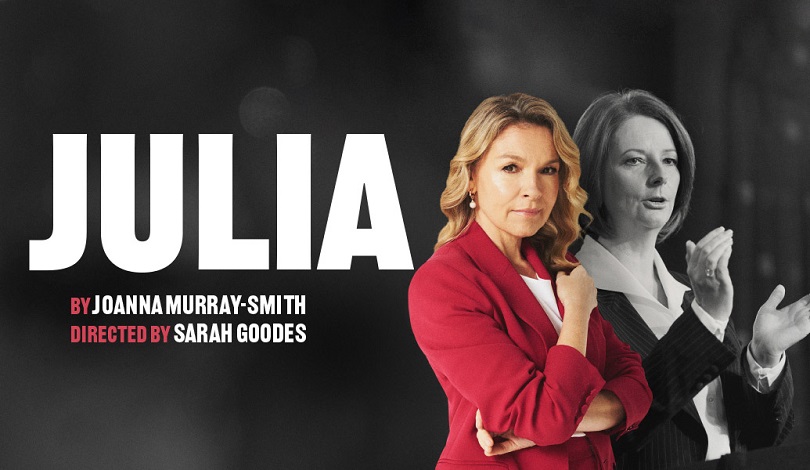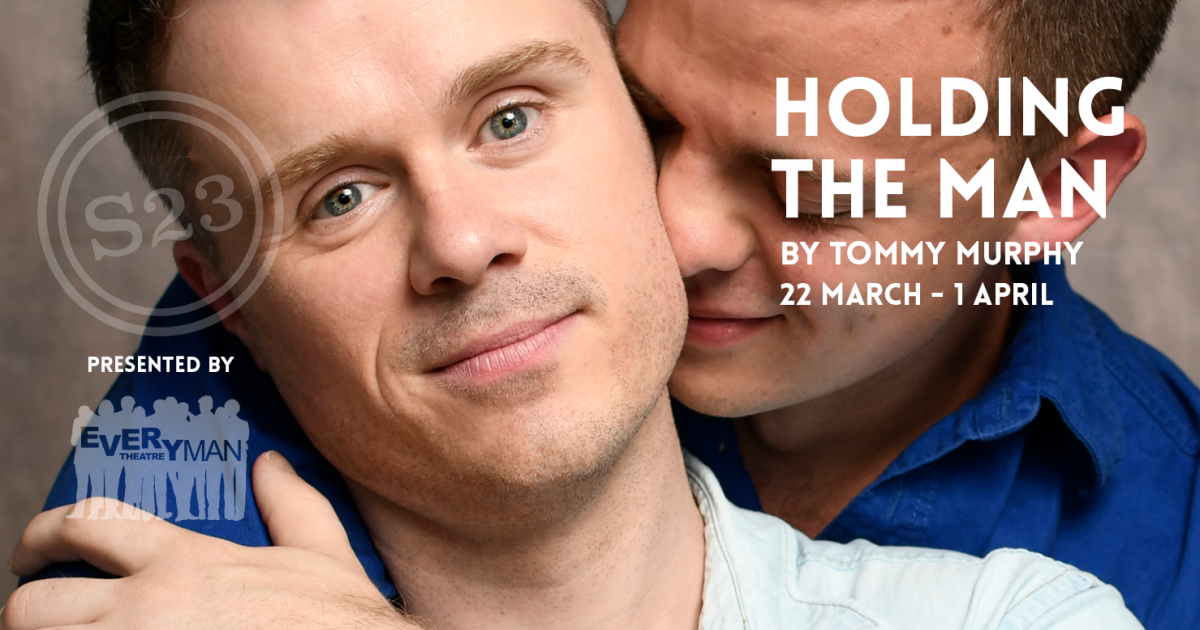- At Dinner - ACT Hub Development Initiative, ACT Hub: In this new piece of writing by Rebecca Duke, we witness a date between two diners (Thea Jade and Timothy Cusack) and their interaction with the third actor (Nakiya Xyrakis), a server in the restaurant. The audience, served by the waiter and given a program in the form of a menu, are included as patrons into the proceedings. Director, Holly Johnson allows the words to do most of the action, in a simple setting where the actors barely move from their seated position. It is a credit to all involved that this retains audience interest despite the static set-up.
- White Rabbit, Red Rabbit - Aurora Nova and Lexi Sekuless Productions, Mill Theatre: The main stipulation for this play, written by Nassim Soleimanpour, is that the performer has never seen it before. It has no director and no rehearsal period. When the actor enters the space, the script is on a chair in a sealed envelope. They must open this envelope and read the contents, including all the stage directions, aloud to the audience. They must carry out the instructions as an actor but also as a human being - even if those instructions may cause themselves risk or potential harm. The audience is forced to be complicit in this dramatic manipulation. It also works better if the audience has not seen it before so is literally on the same page as the actor as they experience the twists and turns of the script. I admit I have seen it before (it was staged at The Street in 2014), where I had such a visceral negative reaction to the piece, I wanted to walk out of the theatre. This time around, I had no such response. The shock value was absent and without that, no matter how good PJ Williams is (and he is certainly engaging and guides the audience through the content like a kindly shepherd), it lacks the necessary punch and just seems mean-spirited.
- Julia - Sydney Theatre Company and Canberra Theatre Centre, The Playhouse, Canberra Theatre Centre: Apparently the Canberra Theatre Centre had to fight to get this premiere by Joanna Murray-Smith, and their efforts are well rewarded. Justine Clarke plays Julia Gillard in an almost one-woman play as she revisits scenes from her personal life and political career. It's not an impression so much as an embodiment, hitting the highs (successfully passing 561 bills through parliament) and lows (the oppositional slurs and sexism) with strength and perfect emphasis. Aided by well-chosen projections, director, Sarah Goodes teases out all the subtlety behind the speeches and the meaning behind the memorable moments. Of course it all leads up to that anti-misogyny speech which brings this house to its feet with justified applause.
- Holding the Man - Everyman Theatre, ACT Hub: This is a touching play dealing with coming-of-age, coming out, and the effect the AIDS pandemic had on the gay community in the 1980s. First produced in 2006 based on a memoir published in 1995, it is entirely of its time, and exactly the worthy drama one would expect Jarrad West to direct for Everyman Theatre. There are a few issues with sight lines, the staging is basic and there are moments that drag (the masturbation scene was obviously more fun in rehearsal, and the mockery of the NIDA students dips into one-note caricature), but the central couple played by Joel Horwood (Tim Conigrave) and Lewis McDonald (John Caleo) are outstanding and push all the right buttons of awkwardness, arrogance and anguish. The supporting cast (Amy Kowalzcuk, Joe Dinn, Grayson Woodham, Tracy Noble) are kept very busy playing multiple roles with effective delineation that bring out all the requisite emotion and leaves the audience in no doubt that they have seen something beautiful unfold before them.
- The Thing That's Missing - Perform Australia, Mill Theatre: Written by Elizabeth Avery Scott and directed by her partner, James Scott, this play features the advanced Diploma of Performance students from their acting school, Perform Australia. The four young people (Annie Nogaliza, Bronte Thomson, Mikkie Martinez, and Isaac Travers) have had something taken away from them, which ranges from the minor insignificance to the crucial piece of their humane puzzle. Each of the four actors tells their story before clearing the stage for the next vignette, until they end up together in their flat-share situation to offer companionship to each other and support their loss. There are moments of humour and some sharp dialogue to offset the well-meaning but overly earnest content.
Friday, 14 July 2023
Friday Five: Next on Stage
Tuesday, 11 July 2023
Fine Print: Terms & Conditions
The framework
(chapters and their content) is written in the style of a legal contract, with
plenty of footnotes to convey the difference between what the narrator voices
and his private thoughts. For example, the final chapter has a subclause, “The
terms and conditions of endings: More often than not, they’re badly disguised
beginnings.” The novel is fast-paced, funny and engaging; the exact opposite of
contractual terms and conditions.
Frank recalls the
beginning of his relationship with Alice. He was a straight-A student at
university who loved taking tests because they “made me feel as if I was
accomplishing things”, whereas she was a free spirit; daring, compulsive and everything
he thought he wasn’t. Frank takes tests
that Alice sets for him – sample tests which she puts into a book making him
seem like a loser. The book is called Executive
X and is a psychometric book about how to hire the right person for the
job, by proving who the wrong person for the job is: Frank. “It was in that period of the late nineties, before
the crash, when there was money everywhere. A time when no one was sure why it
was working or who was responsible – until, that is, management consultants
were credited with the world’s runaway success.”
When Frank notices
how far he and Lisa have drifted apart and how much she is humiliating him, he believes
he may be partially to blame. Guilt has power and is a force that “will hold
together the most opposing forces of the universe”, such as him and his wife. When
he considers his options, one of them is revenge killing, “But I’m British. So
shooting people wasn’t an option. I wouldn’t know where to get a gun if my life
depended on it. As for allowing my rage to trigger a crime passionnel, well, let’s be honest, that’s far too hot and
European for my cold Anglo blood.”
Frank is
depressed and feels lonely, but he does have some people on his side – a wonderful
older woman called Molly, his younger brother, Malcolm, who sends cryptic messages
from wherever he happens to be, and an old colleague and friend of his father’s,
Doug. Fittingly, Frank is saved by the prenuptial agreement his father insisted
that he and Alice sign. He isn’t necessarily happy at the end of the novel, but
he is vindicated as he is rescued by the terms and conditions that he creates
and, over time, ingeniously adds to contracts, knowing that no one reads them
but that they are legally binding.



